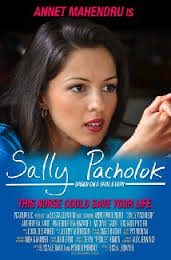Vegan Society Research Officer Terri Holloway speaks about her recent attendance at a B12 conference, and busts some myths about vegans and B12 deficiency.
 A group of nutrition enthusiasts gathered on Saturday, the 16th of May at Loughborough University for an informative conference for health professionals entitled ‘B12, Thyroid and your Patient’.
A group of nutrition enthusiasts gathered on Saturday, the 16th of May at Loughborough University for an informative conference for health professionals entitled ‘B12, Thyroid and your Patient’.
I was representing The Vegan Society at the event and was eager to hear the latest developments in B12 -related research. As I began my early Saturday morning journey from Nottingham to Loughborough, I was looking forward to discovering cutting edge research and recommendations which would be beneficial to vegans.
Following the gradual arrival of attendees from the UK, several European countries and the US, the conference began with a thought-provoking seminar by B12 deficiency expert Sally Pacholok, R.N., B.S.N., who has literally become famous for her life-long battle to raise awareness about B12 deficiency and the consequences of its misdiagnosis.
Sally, who is also a B12 deficiency patient, has spent 27 years as an emergency nurse in the States and has had first-hand experience working in a hospital where several patients were misdiagnosed by uninformed medical professionals. In an attempt to enlighten her fellow colleagues, Sally decided to produce an informative document which detailed the often unrecognised symptoms of B12 deficiency.

After helping numerous patients, Sally’s efforts began to eventually attract negative attention from her superiors and she was ultimately ordered to remain silent on the issue of B12 deficiency with the threat of losing the job she loved. However, Sally’s story now has a happy ending as she used the data initially intended for her ‘Blacklisted’ manual to produce an excellent B12 awareness book titled: ‘Could it be B12 ?: An epidemic of misdiagnosis’ followed by a second book titled: ‘What’s wrong with my child?’, which explains B12 deficiency in children.
Meeting Attendees
After hearing Sally’s powerful story, we had a coffee break which allowed us to digest the material and meet and greet other attendees. During my first chance encounter, I was approached by a very pleasant herbalist, who had a specific interest in plant-based diets and was excited to hear that I was from The Vegan Society. We had a lovely chat about veganism as she asked for specific advice for two family members who were currently transitioning from a vegetarian to vegan diet. We also discussed the dietary sources of B12 for vegans which you can read more about on The Vegan Society’s website.
I thoroughly enjoyed our chat; however, this agreeable meeting didn’t at all prepare me for the chance encounter I had with a very passionate attendee who joined me for lunch after a follow-up session on B12 deficiency prevention for children.
As the attendee (who for non-disclosure purposes, I’ll refer to as ‘Lily’) sat down behind the small round table where I was seated, she greeted me with a kind, comforting look. However, shortly after placing her meat-based meal in front of her, she soon noticed the plant-based dish in front of me. Lily then slowly looked up at me and asked: "Are you vegetarian?"
Understanding that she meant vegetarian or vegan, I nodded: "Yes". The response that followed was the first in a very awkward exchange. "Stay calm" she said, "just stay calm" - this is when I knew for sure that we were about to embark on a very bumpy ride - "WHERE DO YOU GET YOUR B12?" she exclaimed, followed by a very stern glare.
As a pernicious anaemia sufferer, Lily had personal knowledge about the dangers of B12 deficiency. She commenced to list her favourite supplements and health shops, strongly advising me to purchase the same brand… and to actually find the same shops!
Though her presentation was less than friendly, my passionate lunchtime friend was correct about the importance of regular B12 supplementation in the vegan diet. However, I didn’t have a chance to explain that as a conscientious vegan, I faithfully take VEG-1 supplements provided by The Vegan Society which includes an excellent source of B vitamins, including B12 – perfect for vegans and non-vegans, along with its healthy addition of folic acid, iodine and selenium. I did, however, show Lily a few paragraphs from the Dietitian’s Guide to Vegetarian and Vegan diets, a text book which refuted some of the claims she made.
When Lily and I finally parted ways, I understood her passion, which I imagine came from the difficult personal experience that she had. I sincerely hoped she heard the earlier statements of the Keynote presenter when she confirmed to the audience that ‘B12 deficiency is not a vegan-vegetarian issue.’ There are many meat eaters who are B12 deficient, as the conference’s attendees demonstrated; moreover, all adults over the age of 50 should be taking B12 supplements, no matter their diet. Rather than pointing the finger at a particular dietary group, it is more effective to increase information and awareness for everyone.
As I close this therapeutic post, I think that you’ll be pleased to hear that my final chat over coffee was a very friendly discussion with a nurse-attendee who actually diagnosed herself with B12 deficiency. After my experience with Lily, I was committed to beginning all of my conversations with some form of ‘we vegans come in peace’ message. So, I asked the friendly nurse the following question: "If you could send a message to vegans, what would you tell them?"
She replied: "I’d tell them that they have the healthiest diet in the world - but they must supplement vitamin B12." I thought I’d honour my nurse-friend’s request by leaving you with this very important message.
By Terri L. Holloway
For more information about Vitamin B12 and how to get it, please visit this link on The Vegan Society’s website, as well as this site, which was created as a hub to bring all the key websites on vitamin B12 deficiency together in one place.
The views expressed by our bloggers are not necessarily the views of The Vegan Society.


Comments
B12 from fortified foods
Vitamin B12
B12 Blog Response
B12 Supplement